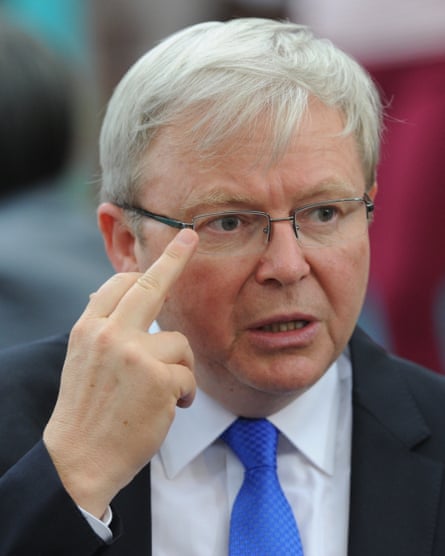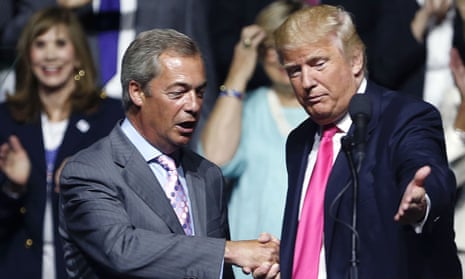The 10th anniversary of the global financial crisis looms this year, which means it’s almost a decade since neoliberal economics began to fall apart. The crisis spawned a global recession, the near collapse of global finance and the subsequent eurozone crisis as governments incurred huge debts amid efforts to rescue the hapless banking industry.
The then Australian prime minister, Kevin Rudd, observed in the immediate aftermath:
The current crisis is the culmination of a 30-year domination of economic policy by a free-market ideology that has been variously called neoliberalism, economic liberalism, economic fundamentalism, Thatcherism or the Washington consensus. The central thrust of this ideology has been that government activity should be constrained, and ultimately replaced, by market forces.
The global recession that followed was the worst in 70 years and its effects continue to be felt in many developed countries. Australia was one of the fortunate few to avoid a recession, thanks to enormous government-funded stimulus packages and the continuation of an unprecedented mining boom. Nevertheless, economic activity has been sluggish ever since, job growth has stalled, wage growth has collapsed and inequality is on the rise.
And yet in 2017, just as neoliberalism is on its knees, so too is the left. It matters not whether we are describing social democrats, socialists, the hard left or the moderate left. A swath of populist extreme rightwing forces is sweeping through many developed countries. Europe now resembles a graveyard for social democracy.
How did it come to this?
First and foremost, there is incompetence.
Neoliberal economics, a creation of the right and embraced to varying degrees by social democrats, has dominated western politics for nigh on four decades. Its mantras of deregulation, privatisation and cutting tax for the wealthy and corporations have been exhausted, if not discredited.
There are only so many assets that can be privatised and, as the head of the Australian Competition and Consumer Commission, Rod Sims, has noted, replacing a public-sector monopoly with a private-sector monopoly has simply driven up prices. The fetish for deregulation and tax cutting has caused immense harm – for consumers, for workers and for governments seeking to provide services demanded of them but hampered by inadequate revenue.
It is not just Pope Francis who has called for major reform of the economic system. The World Economic Forum, which met in January, advocated “fundamental reforms to market capitalism to tackle inequality”. In doing so, it echoed statements of the International Monetary Fund and World Bank, formerly strong advocates of the neoliberal agenda.
The growth of income and wealth inequality meticulously documented by the French economist Thomas Piketty is economically harmful and politically unsustainable. Extreme concentration of wealth undermines the economy, particularly by depressing demand for goods and services. It corrodes democracy as the wealthiest few exercise a disproportionate effect on the political process.
The consistent smashing of climate records across the globe, wiping out species and disrupting industry, the mounting losses caused by extreme weather and the increasing numbers of climate refugees do not militate for more of the invisible hand. When it comes to the climate crisis, neoliberalism has nothing to offer.
Progressive politicians and political parties have had decades to develop alternative policies and programs and then prosecute them. Overwhelmingly, they have failed. In fact, they have lagged behind conservative institutions and politicians in recognising the failings of neoliberalism and moving away from market–dominated politics.
Ideological commitment to small government and cutting red tape did not rob George W Bush of any sleep when he administered a massive US$152bn stimulus to the American economy in the form of the Economic Stimulus Act of 2008. The Conservative British prime minister, Theresa May, did not pine for Margaret Thatcher when she proclaimed that “there is more to life than individualism and self-interest” and that government must correct “injustice and unfairness wherever it is found”.
In contrast, the left has been leaden.
Among progressives, the financial crisis and the climate change crisis should have spawned a broad debate and a reimagining of the role of regulation, a robust and dynamic state working alongside the private sector. Even more fundamentally, the political and economic events of recent decades compel an evaluation of the gaming of the political system by vested interests manifested by the alarming influence of vast sums of dark money.

Democracy and the institutions that support it need an overhaul. When any system is gamed, the rules must change. The left needs to promote new protections to restore integrity and protect information, transparency and accountability.
But for many social democrats, the R word, regulation, like its cousin the T word, taxation, remains barely utterable. Like many other progressives, Rudd was better at diagnosing the problem than charting a new course. Well after the financial crisis, the Rudd government continued to sport a minister for deregulation.
It is not as though we have not seen this before. Many historians and economists have drawn compelling parallels between the gilded age and the modern era. The emergence of all-powerful global monopolies and oligopolies including Apple, Google, Facebook and Amazon thumbing their noses at tax and employment laws mirrors the egregious abuses of the steel, transport and oil monopolies in the US of the late 19th century.
During the gilded age, it was a Republican president, Theodore Roosevelt, who led the progressive charge to save capitalism from itself by imposing strong government regulation on a rampaging private sector.
In 2017 it is another Republican president who has shaken up the status quo. Donald Trump has repudiated some of the orthodoxies of the last 40 years, notably by rejecting what are often misleadingly described as “free trade” agreements. He has also put an end to the outsourcing of US jobs, not by legislation, but by threatening tweets.
Then there is division.
The financial crisis constituted an assault on conservative ideology. Paradoxically, it has triggered a crisis of belief for the left.
Instead of seizing the moment and embracing a Rooseveltian resurgence, the left remains hopelessly divided on what should replace neoliberal economics. At the heart of the divide is a fundamental disagreement about the role of the state in regulating markets. Exhibit one: the extraordinary dysfunction of the British Labour party. Amid its own interminable existential crisis, it is hopelessly divided between Blairites and Corbynites, and will continue to decline until that changes.
The preselection process for the ruling French Socialist party shone an industrial-strength torch on the profound ideological split in the party. If the pundits are right, that process is otherwise irrelevant as the left is unlikely to feature in the presidential runoff.
A similar ideological division marred the Democratic primaries between Hillary Clinton and Bernie Sanders. That division may now be masked by the presence of a common and highly dangerous enemy.
And, finally, there is that quality that we perpetually underestimate in human endeavour – luck.
The crises of the past decade, both economic and ecological, have been accompanied by other remarkable phenomena that have engendered enormous anxiety and anger. The combination of dysfunctional economic inequality, a business and technological tsunami that is perceived to threaten secure employment, an unprecedented global refugee crisis and the spectre of Islamofascist terrorism has offered political reward for a ruthless, agile and unprincipled conservatism.
The right’s capacity to jettison its principles, exploit racism and xenophobia, and to attack other minority groups, cannot be matched. This era is throwing up popular firebrand rightwingers, including Nigel Farage and Trump.
By contrast, for many in the electorate, listening to a modern progressive politician is like taking a tepid bath. The era of technocrats seeking to impress and persuade by their mild-mannered mastery of evidence-based policy is well and truly redundant.

